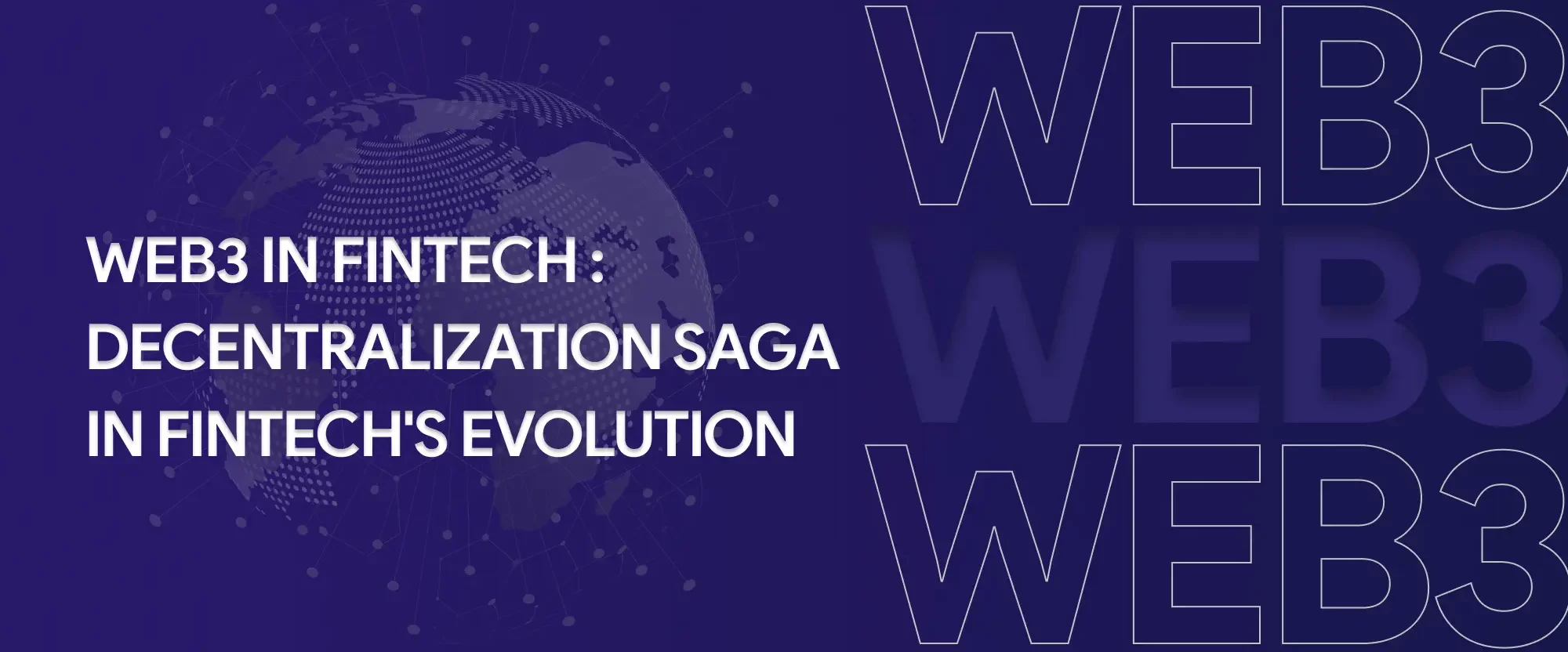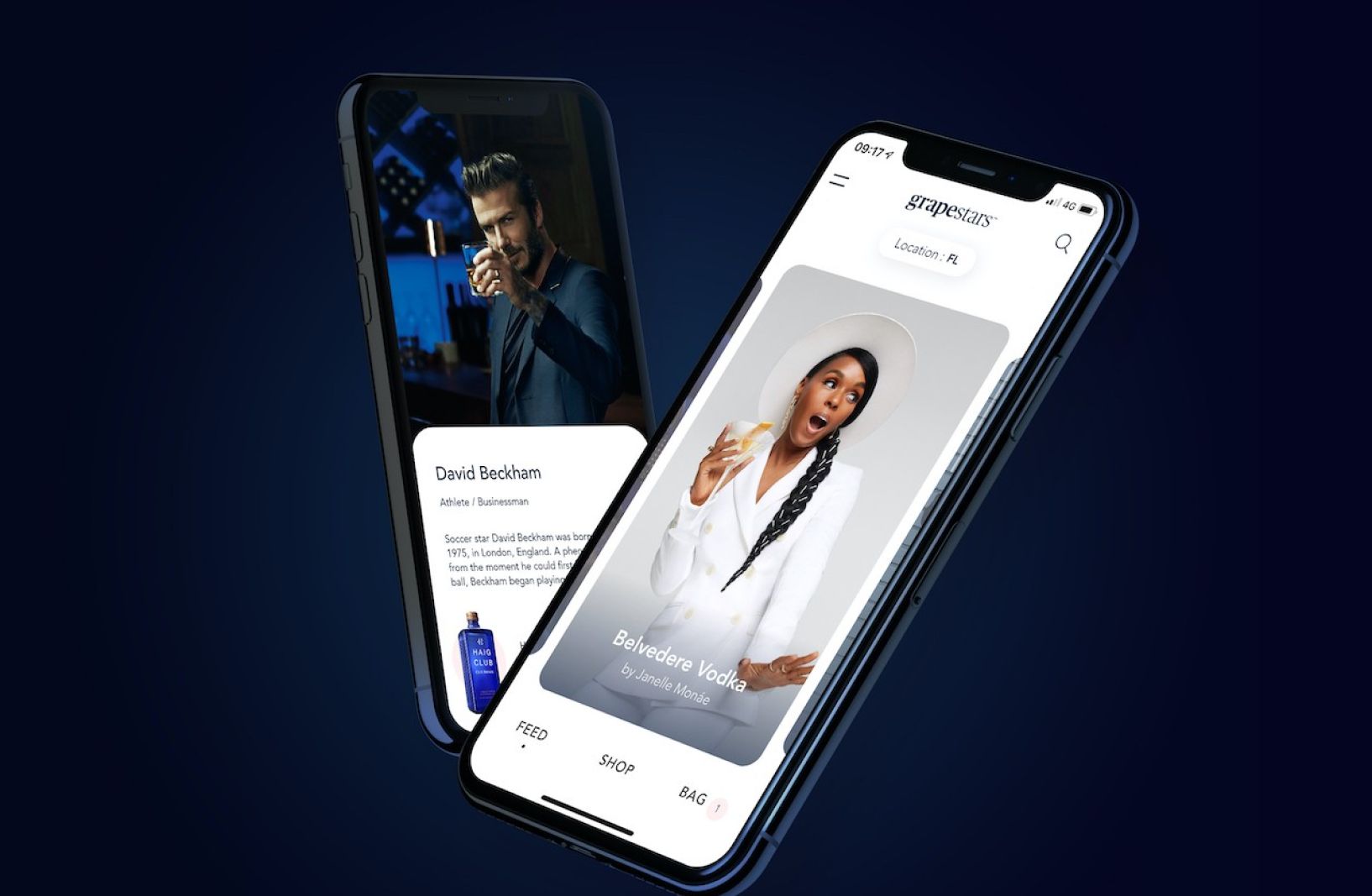It’s not all that flawless in the realm of the internet. In finance management, it can occasionally become vulnerable to hacking and regularisation with numerous terms you may not want to abide by.
Positive and negative changes have occurred in the financial sector since the advent of digital transformation. Consequently, the industry’s primary concerns now revolve around transparency and high-quality security.
Envision a decentralized financial system where users, not authorities, are in charge. Having complete financial independence and excellent security without having to worry about theft or privacy would be amazing, wouldn’t it?
Indeed it is! Fortunately, it’s a reality now rather than just a pipe dream, and all the credit for it goes to Web 3.0, a ground-breaking technology that’s changing finance as we know it.
Even though Web3 is still in its infancy, it has already made enormous strides in the banking industry.
So, follow this blog as we cover all the essential information on web3 in finance.
What does Fintech Web3 mean?
Web3, as the name implies, is the third iteration of the internet. Its market is expected to grow at a compound annual growth rate (CAGR) of 43.7% to reach $81.5 billion in 2030.
With no centralized authority or regulatory agencies, the web3 environment is a decentralized network that gives consumers total autonomy over their digital data.
In the context of fintech, web3 refers to the use of blockchain technology, smart contracts, cryptocurrencies, decentralized applications (dApps), and numerous other tools to make financial operations decentralized and eliminate the need for middlemen.
Web3, because of its decentralized structure, seeks to establish a financial environment that is more transparent, inclusive, and open. Furthermore, web3 has replaced fiat money in the financial sector due to its popularity.
Why Is the Web3 Revolution Something Financial Institutions Should Use?
With the help of blockchain technology, the decentralized nature of the Web Three concept burst onto the technology scene and began upending numerous industries, including the finance sector! The following are the justifications for or advantages that financial organizations can experience by embracing the web3 revolution:
Dispersed Systems
Because Web 3.0 lacks regulating bodies, it is more secure and unaffected by internet censorship, which is why we refer to it as a decentralized internet. It gives consumers complete control over their data, strict privacy, and affordable financial services.
Increased Safety
Web3’s foundation is blockchain technology, which provides enhanced security features over conventional financial systems. This is necessary for Web3 to thrive in the unstable internet environment where cybersecurity risks abound.
The likelihood of bad actors attempting security shield bridge efforts is decreased by the decentralized web3, which keeps data in pieces across several nodes, each encoded with a distinct encryption key.
Protecting the integrity of financial systems and fostering user trust are the main reasons for the financial industries to invest in web3 technology.
Compatibility
Web3 encourages the use of open standards and protocols, standardizing and facilitating peer-to-peer trading on decentralized exchanges (DEXs). And it synchronizes the operation of a great deal of financial apps.
In summary, web3 in a finance app creates a DeFi environment that permits interoperability, allowing you to contribute to a reduction in the time, effort, and money spent by app users.
Objectivity
Because Web3 is a decentralized system, it offers complete control and transparency over financial data, facilitating accountability and lowering the likelihood of fraud.
To build trust and enhance user experience, financial institutions can use this functionality to give clients a clear view of their transaction history.
Reduced Expenses
With the help of emerging digital technologies like blockchain and AI/ML, the Web3 ecosystem can automate several financial procedures without the need for middlemen. As a result, efficiency is increased and transaction costs are decreased.
Creativity and Cooperation
You may encourage an innovative and collaborative financial culture by implementing web3 technologies. Decentralized applications can also be used to improve financial services.
Whoa, web3 has a tonne of goodies on offer for the finance industry! But how will you implement web3 so that your finance app may reach its full potential? That’s the subject of the following section!
Which Web3 Solutions Is the Fintech Sector Able to Use?
As everyone is aware, blockchain technology is the main force behind web3 technology. Naturally, it will be extremely important for the adoption of web3 in the finance industry. Let’s investigate the possible web3 use cases for Fintech solutions to implement to prepare your financial company for the future:
Financial Decentralisation (DeFi)
Decentralized Finance, or DeFi for short, is the initial application of Web3 in finance that revolutionized the way we handle money. To put it briefly, DeFi emerged as an inventive substitute for conventional financial procedures, such as borrowing and lending, trading, earning interest on deposits, and more.
Indeed, the DeFi industry was anticipated to be worth $11.96 billion in 2021 and is projected to grow at a compound annual growth rate of 42.6% to reach $232.20 billion by 2030.
Additionally, only specific institutions, professional traders, and corporate executives can access financial services through DeFi.
You can also benefit from simple and safe access to DeFi wallet services, the ability to transfer assets across accounts with ease, faster data updates, and complete transparency.
Constantine
Stablecoins, as their name implies, are a class of cryptocurrency that aims to keep their value steady. Like the US dollar and the euro, they reduce price volatility with a 1:1 ratio.
As you can see, stablecoins come in three varieties:
- Stabilized coins backed by reserves of conventional fiat money are known as fiat-collateralized stablecoins. TrueUSD (TUSD), USD Coin (USDC), and Tether (USDT) are among them.
- Stablecoins with crypto collateralization: It comprises DAI and Ethereum (ETH), secured by conventional cryptocurrencies kept as collateral, as well as USD backed by Synthetix Network Token (SNX).
- Algorithmic stablecoins: These lack collateral back support and are stabilized by algorithmic processes and blockchain-based smart contracts.
Stablecoins offer quick and inexpensive transfers, consistent value, and trustworthy, transparent, and easy-to-use cryptocurrency exchanges.
DEXs, or decentralized exchanges
Decentralized exchanges resemble cryptocurrency exchanges offered by well-known sites like Binance and Coinbase, but they are more decentralized.
DEXs enable peer-to-peer trading between users without the need for a central authority or third parties, in contrast to centralized exchanges that depend on middlemen to handle transactions.
Thus, you can benefit from features like complete control and ownership, privacy and security, transparency, liquidity, accessibility, and resistance to censorship with the creation of decentralized exchange platforms.
A few well-known decentralized exchange networks are Balancer, PancakeSwap, SushiSwap, and Uniswap.
Alternatives
Decentralized derivatives, or DeFi derivatives, are another name for derivatives on web3, which are financial contracts based on blockchain technology. They inherit the transparent nature of the decentralized internet.
Furthermore, the values of decentralized derivatives come from a reference rate or an underlying asset. These derivatives can also be utilized for arbitrage, speculation, and hedging against price volatility.
Decentralized derivatives also allow for unrestricted public creation, which is another factor to be aware of. They can be utilized as conventional derivatives, which is the fun part.
Furthermore, DeFi derivatives are utilized and traded using DeFi Derivative Protocols-related exchanges and tools. A few of the well-known DeFi derivative protocols are Hegic, Synthetix, UMA, Opyn, dYdX, and Perpetual.
Fund Administration
Web3 in finance has made it possible for users to manage their financial assets and make fund-based decisions, much like traditional fund management. In this context, fund management may refer to currency exchange, cash flow management, etc.
However, there are two varieties of decentralized fund management when it comes to DeFi: passive and active.
The term “active fund management” refers to the method by which a group of fund investors decides how much to invest in the market. Users of passive fund management imitate DeFi holdings to get certain results.
Decentralized Apps and Systems for Payments
The web3 contributors in fintech have also planned to make all traditional financial services decentralized in line with the expansion of web3 in finance. Additionally, it consists of decentralized banking and cryptocurrency wallets, which enable more accessible, transparent, and secure decentralized peer-to-peer payments.
You can still make safe, automated payments using decentralized payment systems in the same manner as before. Thus, learning the decentralized system from the start won’t take too much work.
Dispersed Insurance
The idea of insurance is unchanged in the web3 environment, except for the inheritance that web3 gives decentralized insurance. More specifically, decentralized insurance is used in the DeFi world to safeguard assets against the possibility of smart contract hacks, problems with cryptocurrency wallets, assaults on DeFi protocols, etc.
Given that blockchain technology supports the web3, it is improbable that decentralized products will experience a hack. But it’s always better to prepare for the worst than to take a diversion.
Decentralized insurance in Web 3 adheres to parametric insurance claim criteria. It indicates that you must fulfill all policy requirements to be eligible for insurance benefits. Smart contracts are used to implement all of this.
The self-executing nature of smart contract-based insurance processes is their strongest feature. Therefore, your smart contract-based insurance will take action on its own and remove the possibility of making fraudulent claims when your decentralized transactions encounter any problems or procedures that encounter obstacles where financial risks are present.
Finance for Regeneration
A movement known as “regenerative finance” (ReFi) unites financial practices that are concerned with social effect, sustainability, and regeneration. Developing a system to engender a new definition of finance, as opposed to examining the one that prioritizes profit and externalizes social and environmental consequences, is the goal of the ReFi approach.
The ReFi movement is primarily concerned with socially conscious investing, sustainable finance, and impact investing. Thus, it has the potential to be an effective instrument for promoting social justice, sustainability, and positive change.
Technical Difficulties With Web3 Implementation in Fintech Solutions
Although web3 in banking has many advantages, its primary characteristic of decentralization can also present several difficulties. Thus, the following difficulties may arise when integrating web3 with finance applications:
Reliability
Because DeFi systems are based on blockchain networks, their complexity may limit their potential to scale. Accordingly, when more transactions flow into the network, its complexity may increase, leading to longer processing times and higher transaction costs. Therefore, achieving high throughput and scalability in your DeFi solutions calls for a higher level of technological expertise.
Compliance and Regulation
Because Web3 technology is decentralized and constantly changing, it will inevitably encounter regulatory obstacles when applied to DeFi. Thus, implementing regulation and compliance is a complex and time-consuming task—not that it’s too hard.
Combination
Fintech systems are constructed using numerous connections, including banking systems, KYC, and payment gateways. Additionally, it can be difficult to overcome regulatory obstacles and interoperability when integrating web3 and traditional banking systems in DeFi.
Aside from these technological difficulties, you can have some trouble training consumers about how to use your app effectively and raising awareness of your DeFi solution.




